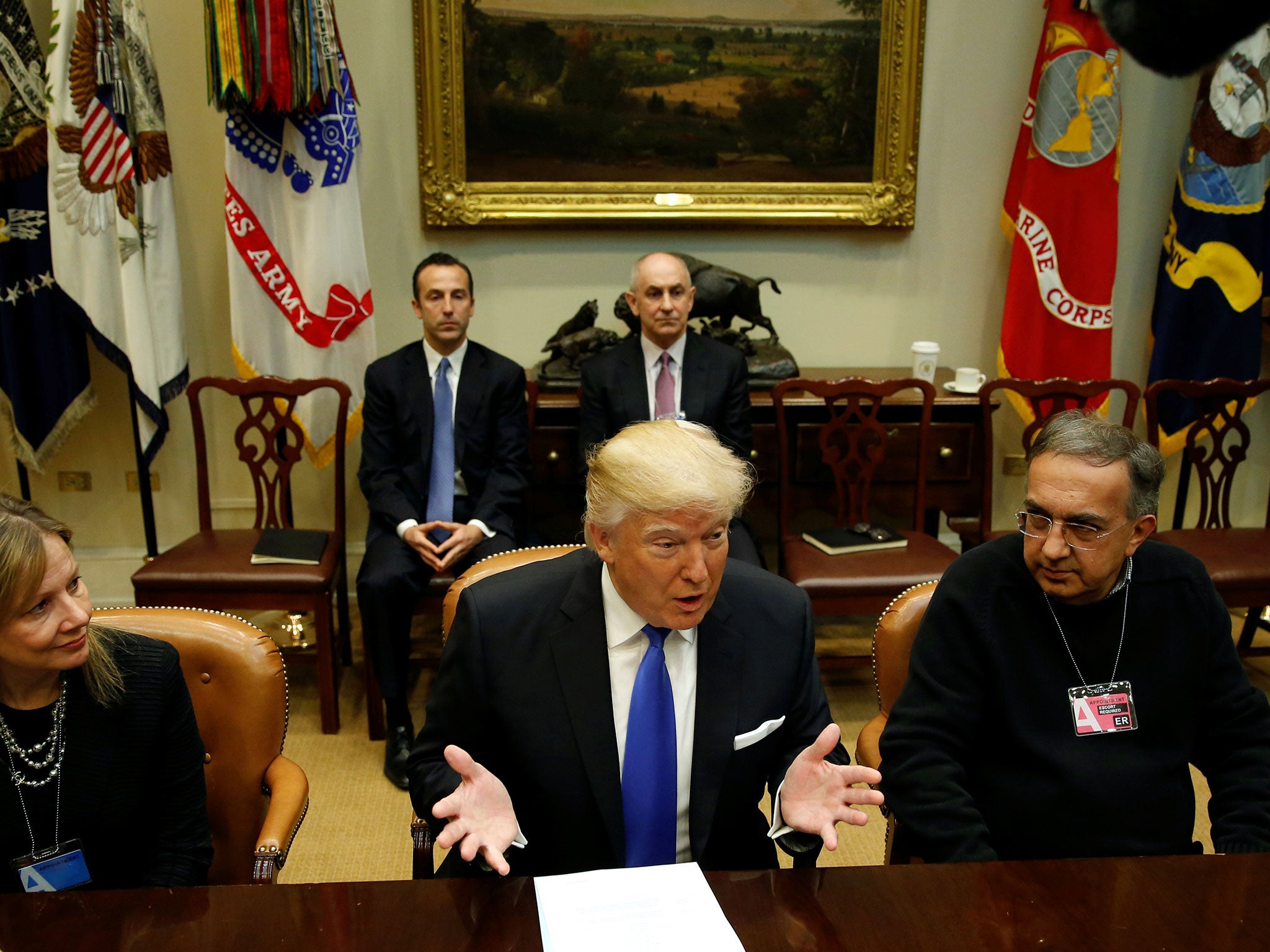We've lived for longer than you think with Trump-like 'alternative facts' – we just used to see spin as a good thing
Though Bill Clinton said, 'I did not have sexual relations with that woman', it transpired that he was being rather limited with his own definition of sexual relations. And who could forget Tony Blair's 'sexed up' dossier on Iraq?


Alternative facts. Fake news. Political lying. Whatever you want to call it, it’s been with us for a long time – it’s just that we just used to call it spin.
For decades the art of political spinning was as revered as it was maligned. Voters hated it, on the rare occasions they spotted it, but politicos and wonks admired the so-called “dark arts” of the most skilled. But now something has changed. We are apparently no longer willing to tolerate the twisting of facts for political gain or our entertainment. And thanks to social media, politicians can’t get away it anymore. It’s easier than ever for voters to prove that Trump’s truths are so often of the “alternative” variety, and that has stirred up a fresh anger for the game of truth and lies that has been played for decades.
Is this the end of the era of spin?
From wartime propaganda to Blair's infamous “sexed up” Iraq dossier, this is not a new technique. There are some who thought Blair ushered in the dreaded spin doctor, with Alastair Campbell and Peter Mandelson, known at the time as the “Prince of Darkness”, among the first legendary political spinners in their own right. But this had been going on for decades – if not centuries – by the time Blair told us that things could only get better if we just looked at this other set of government statistics.

During the Margaret Thatcher years, statistics relating to the output and profitability of Britain’s remaining mines were cherry-picked to make her case for closures, as strikers desperately sought to point out. Later, she used various techniques to cook the books over real unemployment rates. A plethora of youth training schemes and other funds were established including the “enterprise allowance” which gave anyone an income if they could prove they were setting up their own business. These people – often musicians and artists – would otherwise be plying their trade on the sidelines while claiming the dole.
By the 1990s, Major was treading along carefully in her footsteps and the Blair era became synonymous with spin. By this point, journalists were even writing books about it. In Peter Oborne’s The Rise of Political Lying, he exposed the ways that politicians were increasingly “economical with the truth”, describing it as an art form but also indicating that it was one that deserved greater contempt than it ever seemed to receive.
How far we’ve come. Now Trump’s bizarre, unjustifiable statement about the number of people attending an inauguration ceremony can dominate the news agenda for three whole days, regardless of the fact that it really doesn’t matter now many people were there. Our tolerance for spin seems to have eroded overnight.
Remember, it’s not even that Trump is so wildly different on this matter than his predecessors. Though Bill Clinton said, “I did not have sexual relations with that woman”, it transpired that he was being economical – or shall we say limited – with his own definition of sexual relations.
It’s not just politicians who are involved in spin. Newspapers have been using similar tactics for decades too. When journalists search for a “line”, they’re looking for the most interesting angle or perspective on a story, a nugget of information from a seemingly impenetrable set of statistics, a chink of light that appears to illuminate the murky complexity of what’s really going on. Whether it really does or not is a moot point. It does, however, create the sense that this is all a game. As a former news reporter, I know it’s a game that’s compelling to play, one that’s very easy to get caught up in. Its lures are there to be resisted; too often they are not.
We ended up in this post-truth world where “alternative facts” proliferate because, most of the time, it doesn’t really matter that much. The Government putting out some new figures on, say, employment levels and choosing the best way to dress them up is not in itself duplicitous. Likewise, whether Trump really wanted people to believe that more people attended his inauguration than Obama’s or simply wanted to claim that more would watch it using YouTube and the like, is not particularly important.
But then, sometimes, as in the case of the Iraq dossier, it does matter.
Could such a breach of trust in the pursuit of political gain ever happen again? The term “alternative facts” is a good one for our times because it demonstrates a new lack of tolerance for the tactics of the spin doctor. Now that every voter can set up a Twitter account, a Facebook page or a Medium profile, everyone is a journalist. The game is no longer finding the line but exposing the lie, and we’re all involved.
Trump is not necessarily going to tell more lies or “alternative truths” than any other politician in US or British history. But apparently he won’t be able to get away with it anymore.
Join our commenting forum
Join thought-provoking conversations, follow other Independent readers and see their replies
Comments
Bookmark popover
Removed from bookmarks